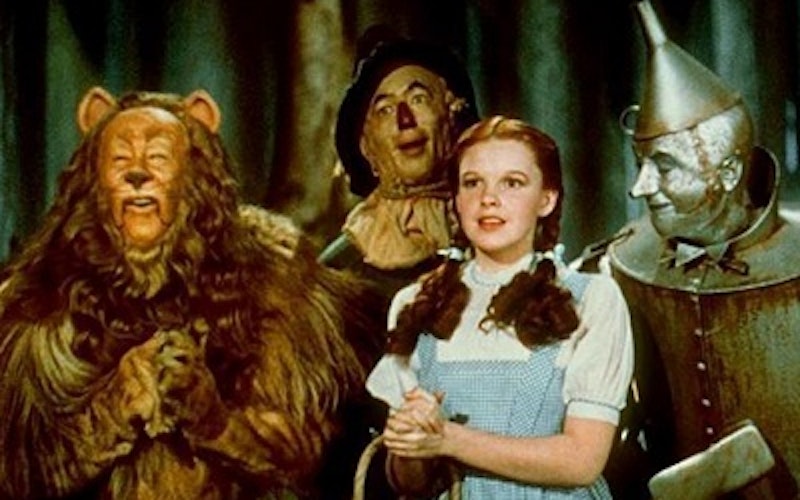
Movies
What Does The Wizard of Oz Mean to You?
What does The Wizard of Oz mean to you?
We have occasion to ask because yet another edition of the 1939 classic has been released on DVD, this time to celebrate the movie's 70th anniversary.
The Wizard of Oz has maintained classic status for all those years because kids return to it as adults, both to share the movie with their own children and to revisit a seminal childhood viewing experience. And it’s as adults that we notice the picture is not simply a children’s fantasy, but also a wondrously malleable allegory. Its imagined universe is so rich and vast that you can read almost anything into it.
From a certain angle, The Wizard of Oz is a celebration of humanism. After all, this is a story full of false gods. Scarecrow, the Tin Man and the Cowardly Lion are fantastical figures, but in reality they’re only Dorothy’s farmhand friends back in Kansas. And what of the “great and powerful Oz,” who conjures an aura of omniscience with literal smoke and mirrors? He’s nothing but the original man behind the curtain - emphasis on man.
True power, then, lies not with this wizard but within us. In order to defeat the Wicked Witch of the West, Dorothy and her friends summon the intelligence, fortitude and bravery within. Human ingenuity – not divine grace – saves the day.
Yet you could also describe “The Wizard of Oz” as agnostic. Throughout, characters wonder how anyone can be sure of the existence of Oz. When one of the gatekeepers of the Emerald City tells Dorothy that no one has ever seen the wizard, she reasonably asks, “How do you know there is one?”
And then there are the redemptive interpretations of the movie. Doesn’t Glinda, the good witch, represent a beneficent higher power, one that triumphs in the end? Remember, it is she who ultimately shows Dorothy how to get home.
These are only a few possible readings; I’m sure there are dozens more. And so I’m curious - where does the yellow brick road lead for you?
Topics: Movies